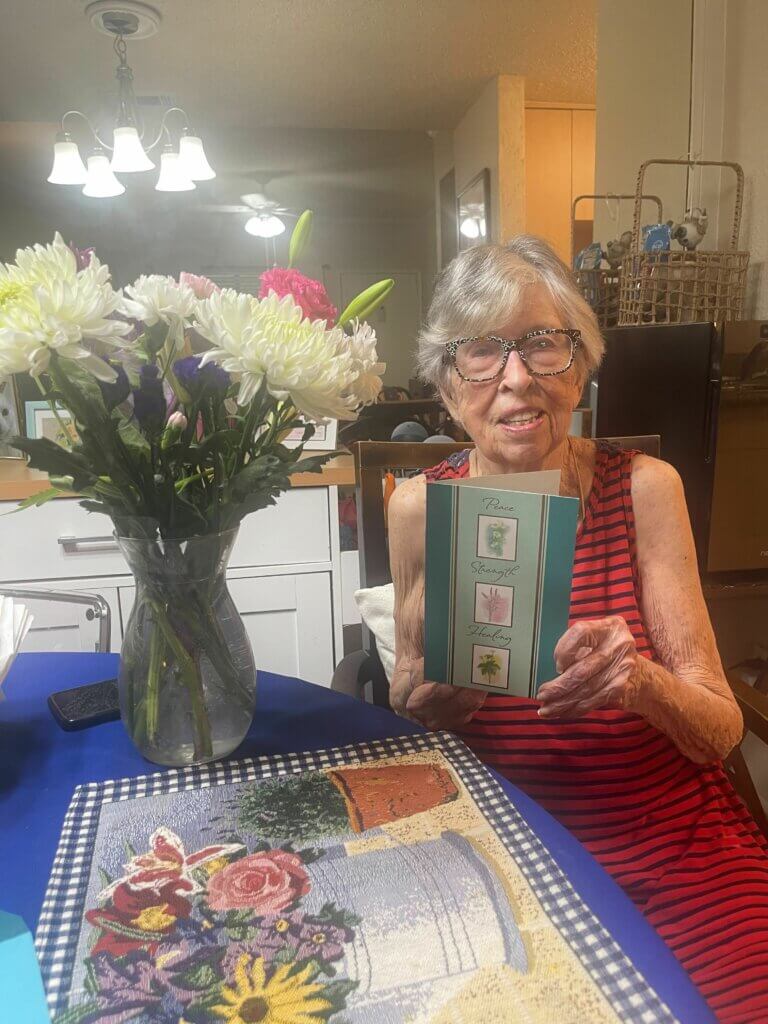Assisted living may be an option, allowing seniors to maintain independence.
As seniors experience decreased mobility, managing independently at home can become challenging. But most still wish to retain independence rather than move into a nursing home. Assisted living facilities provide a middle ground offering seniors housing with services to simplify daily tasks. There are excellent assisted living communities in Houston Metro that promote comfortable, engaged living.
Assisted living offers seniors and families a viable option when some extra care is needed but skilled nursing is not required. These managed communities provide housing, meals, safety oversight, health monitoring, social activities and personalized care while preserving resident autonomy.
Understanding Assisted Living
Assisted living facilities provide seniors with housing, services and health oversight while maximizing independence. Common assisted living features include:
- Private apartments with kitchenettes
- Three meals daily plus snacks in a shared dining area
- Scheduled transportation for errands and appointments
- Assistance with activities of daily living like dressing, bathing, medication prompts
- Wellness checks and health monitoring
- Emergency call systems in each room
- Planned social activities tailored to abilities and interests
- Housekeeping and laundry services
- Some nursing and medical care (varies by state regulations)
- Round-the-clock staff availability
While more supportive than independent living, assisted living offers a less clinical alternative to nursing homes for seniors not requiring intensive skilled care. Services are tailored to the resident’s evolving needs.
Benefits
Offers many advantages for seniors compared to remaining in their family home or moving to a nursing home including:
Increased Safety – Qualified staff are available 24/7 to respond to emergencies and health issues compared to being home alone. Many precautions protect residents.
Social Connection – Activities combat isolation and boredom. Supportive communities provide friendship with shared dining, classes, outings.
Health Oversight – Registered nurses monitor residents’ health changes, coordinate medical care and oversee medication regimens. Issues caught early prevent hospitalization.
Lifestyle Stability – Consistent staffing, routines and location avoid the disruption of frequent caregiver changes experienced at home.
Living Assistance – With some difficulty completing personal care or household chores alone, assisted living provides just the right level of hands-on assistance while still encouraging independence.
No House Maintenance – Residents avoid burdensome home maintenance hassles like yardwork, home repairs, snow shoveling, cleaning. Staff handles everything.
Recreation & Stimulation – Life enrichment programs provide diverse exercise options, volunteering, learning, ministry services, games, crafts and excursions catered to different interests and abilities. Boredom is reduced.
Dignified Settings – Apartment-like units allow privacy and avoid an institutional feel. Family can help decorate spaces.
Modified Assistance Over Time – Increased services like more hands-on care can be added flexibly as needed if health declines, up to a point.
For seniors wanting enhanced support while maximizing self-reliance, assisted living offers the right blend of services, safety and independence.
Evaluating Options
If considering assisted living, Houston Metro families should thoroughly evaluate potential communities. Key factors to assess include:
- Specialized Training & Staffing – Look for robust initial training and continuing education. Adequate staffing levels ensure quality oversight and care. Low turnover retains familiar faces.
- Range of Services – Find a location offering all needed services from household help to skilled nursing under one roof, with the ability to expand care as needs grow.
- Health Services – Look for registered nurse oversight managing medications and issues, with nurse practitioner hours for clinical care. On-site therapy maximizes rehabilitation.
- Safety Record – Review any inspection deficiencies, complaint resolutions and how the community trains staff on proactive safety. Look for strong disease control practices.
- Living Spaces – Tour rooms to ensure comfortable size with needed furnishings. Assess noise levels and privacy. Availability of companion or single occupancy units is optimal.
- Amenities – Desired amenities like salons, fitness center, theatre, outdoor gardens, walking paths, worship space and pet-friendly policies make day-to-day life more enjoyable.
- Activities & Social Life – Robust activity calendars, resident interest groups and flexible programming meet diverse needs. Cultural or language matching creates community.
- Policies – Understand move-in criteria, visiting policies, dining options, transportation availability, emergency protocols and fee structures during tours. Read all contracts.
- Accessibility – Ensure the community accommodates wheelchairs, walkers, grab bars with accessible bathrooms, wide doorways and flat surfaces.
With careful vetting guided by senior desires, families can find assisted living delivering the right blend of services, amenities and community.
Paying for Assisted Living Care
Costs vary based on location, room type, service levels and amenities. Nationwide averages range from $3,500 – $5,500 monthly. There are options to help pay for care:
Long-Term Care Insurance – Policies with benefits help pay a portion of costs ranging from $100-$300 daily typically.
Veterans Benefits – The VA Aid & Attendance benefit provides up to $1,936 monthly for qualified veterans and spouses for assisted living.
Reverse Mortgage – Seniors can take a reverse mortgage loan out against home equity to fund assisted living monthly costs.
Medicaid Waivers – Medicaid HCBS waivers in some states cover assisted living, depending on income. State programs vary widely.
Life Settlements – Seniors can sell their life insurance policy to an investor for a portion of the death benefit to generate funds.
Private Savings & Investments – Many pay privately from retirement savings and Social Security income initially, spending down assets over time.
With advance planning, families have options to fund assisted living and secure the most appropriate residence.
Assessing Readiness
Determining when assisted living becomes the right choice involves assessing current abilities and needs:
- Has home upkeep like cleaning become difficult or hazardous?
- Is cooking nutritious meals challenging with decreased energy and mobility?
- Have falls or unsteady walking become more common?
- Is medical oversight needed for conditions like diabetes, COPD or Parkinson’s?
- Is the senior experiencing cognitive changes or memory lapses?
- Has social isolation or depression become more common?
- Are hygiene and bathing tasks able to be managed independently?
- Can the senior take medications safely and correctly without oversight?
- Is existing home care not adequately addressing evolving needs?
- Does the family caregiver feel overwhelmed trying to provide sufficient care themselves?
If one or more of these issues are occurring, assisted living may provide the right solution to maximize comfort, health and quality of life.
Finding the Best Assisted Living Community
To locate quality assisted living options in Houston Metro tailored to specific needs:
- Clearly define current and expected future care needs
- Develop a list of desired amenities and apartment features
- Determine the ability to pay for long-term costs
- Identify preferred location near family, cultural communities, worship, healthcare
- Consult the Area Agency on Aging database for inspected communities
- Schedule tours of multiple shortlisted communities
- Thoroughly evaluate staffing, training, safety, services
- Read recent inspection reports and resolution of any issues
- Eat meals to taste food quality and sample activities
- Have potential residents visit to experience the vibe and staff interactions
- Contact previous resident families to learn their experiences
- Compare costs for care contracts and selected services
With proper diligence guided by the senior’s expressed wishes, families can secure the best living arrangement.
Contact us at 832-371-6600 for a free consultation to share the challenges you’re facing, and to learn how our personalized home care services can help you.
Home Matters Caregiving proudly serves the Houston Metro area providing care for seniors wherever they call home.











